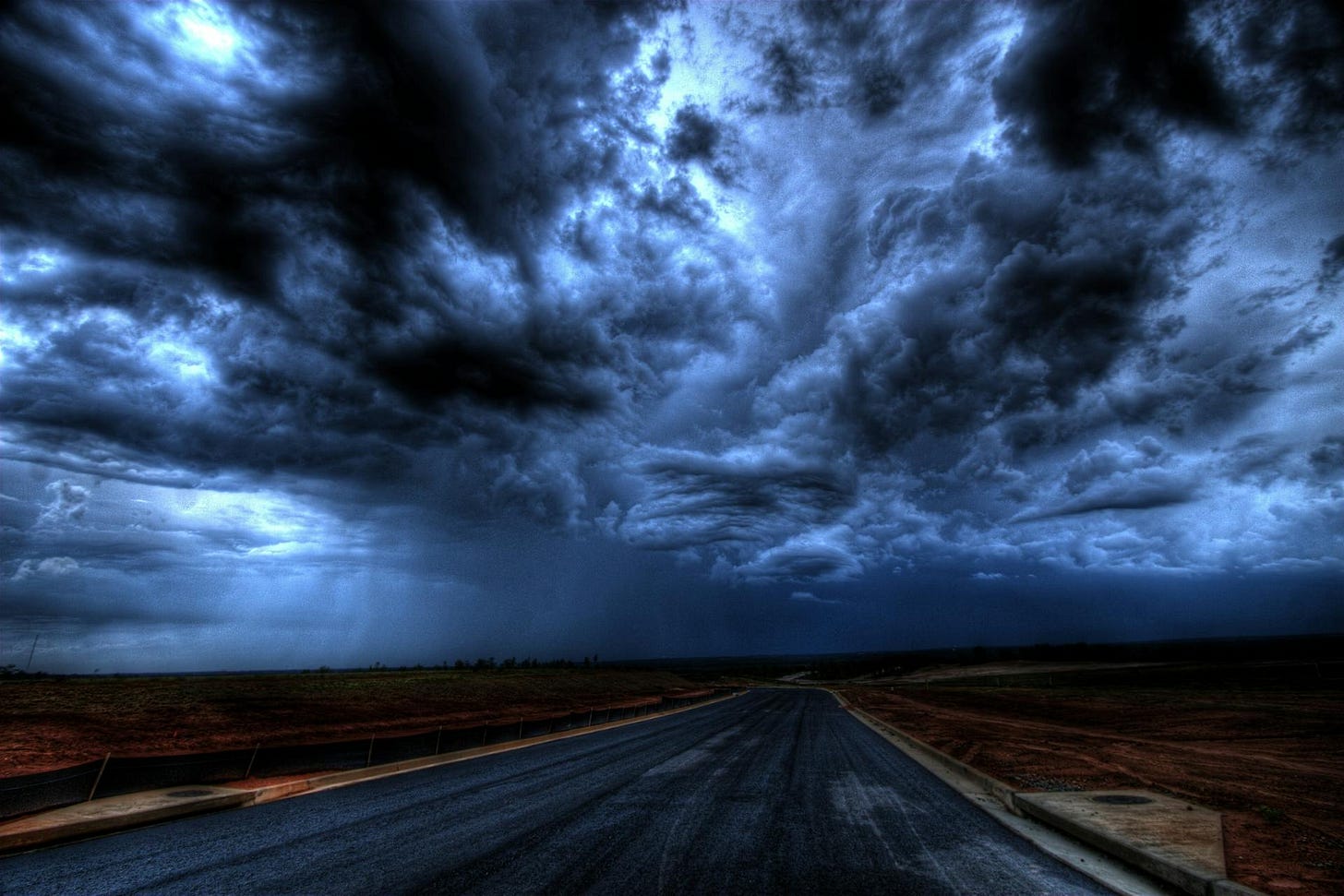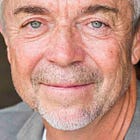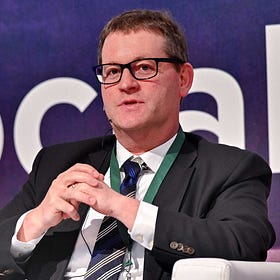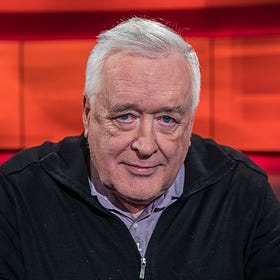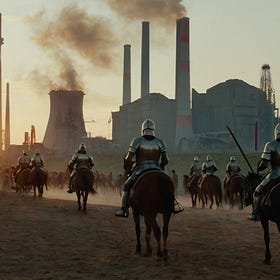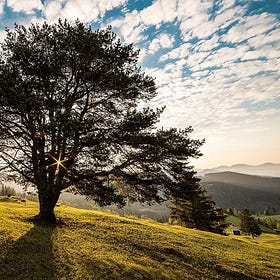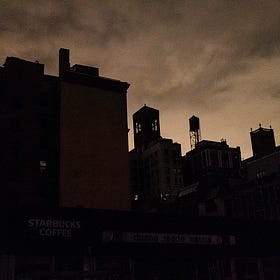So now the blackout has occurred, albeit not on our doorstep, but in southern Europe, in broad daylight. At 12:33 p.m. on April 28, 2025, computers reported a frequency drop, and the grid, which operates at 50 hertz, suddenly plummeted to 49.84 hertz. As is customary, the usual suspects were brought on to the bandwagon, speculating that the collapse was due to a hacker attack. However, Spanish power provider Red Eléctrica ominously and ambiguously attributed the blackout to strong oscillations and massive power generation failures. While the investigation into the cause may still be ongoing, the blackout clearly illustrates how fragile our energy system is – and that we're ultimately dealing with a total work of art that's evolved over decades, a res publica par excellence. In this sense, it's completely irrelevant which purity doctrines individuals follow, whether they separate their trash or give up everything that increases their carbon footprint. If communism had four arch enemies (Spring, Summer, Autumn, and Winter), the threat to the grids (apart from sabotage) lies in its volatility of too much or too little energy. From this perspective, not only the dark doldrums but also sunstroke pose a significant danger. The fact that the grid failed in broad daylight suggests that, in this case, an excess of volatile energy or a lack of information or control options could have caused the blackout.
This touches on a topic we've discussed at length on ex nihilo in our many conversations. Manfred Haferburg, who experienced a blackout as head of the Greifswald nuclear power plant commission at the turn of 1978/79, pointed out that the energy transition had significantly increased the volatility of the grid—and that this alone had heightened the risk of a blackout.
The conversation with Fritz Vahrenholt was similar. As a child of the Ruhr region and a former environment senator, he was a pioneer of environmental protection. However, to his dismay, he had to conclude that environmental discourse has become increasingly infantile over time, precisely in proportion to its moralization, and that the energy problem can't be tackled with the necessary rationality.
A conversation with André Thess made it clear that even he, a scientist who teaches building energy, thermodynamics, and energy storage at Stuttgart University, and also heads the Institute of Technical Thermodynamics at the German Aerospace Center, sees little merit in the energy transition.
Im Gespräch mit ... André Thess
Eines schönen Tages, wenn dieser Winter des Missvergnügens Geschichte sein wird, wird ein extraterrestrischer Anthropologe sich über den deutschen Wald, die Energiewende und die politische Romantik Gedanken machen – und weil er, qua Herkunft schon, unverdächtig ist, die Welt am deutschen Wesen genesen lassen zu wollen, wird er sich unweigerli…
Quoting Thess, in reference to the actions of societal folly, can only quote Nietzsche:
Madness is rare in individuals, but in groups, parties, peoples, and times, it is the rule.
This question of how an entire society can lose itself in a collective fairy tale touches on our current media landscape.
This was also the subject of the thought-provoking conversation I had with Axel Bojanowski:
On Climate Change and Journalism
We will start posting our German Podcasts as Englisch transcriptions beginning with Im Gespräch mit ... Axel Bojanowski as our initial offering…
The extent to which the climate debate has become a battleground was highlighted in a conversation with Roger Pielke Jr., who, despite being a level-headed, award-winning environmental researcher, suddenly found himself labeled the Lord Voldemort of climate research:
Talking to ... Roger Pielke jr.
You might call Roger Pielke Jr., the son of the highly respected Climatologist Roger Pielke Sr., an Environmental Political scientist who analyzes the atmospheric disruptions between Science and Politics. And because, with the looming apocalypse, this represents mined terrain, Dr. Pielke, who's been awarded international prizes and honor…
The seasoned social democrat Hans von Storch expressed similar sentiments. As a climatologist, he was dismayed to see his discipline become the stage for highly moralized and politicized debates, or what could be called a climate trap:
Im Gespräch mit ... Hans von Storch
Zweifellos, Hans von Storch ist ein ungewöhnlicher Zeitgenosse. Warum? Weil man es hier nicht nur mit einem Klimatologen von Weltrang zu tun hat, der seit 1999 Associate Editor des „Journal of Climate“ der American Meteorological Society ist und 2006 vom amerikanischen Repräsentantenhaus zur Wahrscheinlichkeit eine…
That we use terms in the environmental debate whose implications we aren't even remotely aware of became clear during a conversation with Dr. forest Andreas Schulte. Schulte mentioned that social democratic ministries have a strong aversion to terms such as elite, while the conversation clarified that a term like sustainability (which comes from forestry, referring to periods of 30 to 100 years) is diametrically opposed to the expectations of today's investors, who can hardly see beyond the next quarter.
Greener than Green
»What times are these when / A conversation about trees is almost a crime / Because it includes silence about so many misdeeds!« (Bertolt Brecht)
The extent to which the Eurocentric approach reflects self-centeredness, having little to do with global energy issues and more akin to a pseudo-religiosity, became evident in a conversation with American energy expert Scott Tinker, who has traveled around the world several times, documenting the issue of energy poverty in impressively powerful films:
The importance of taking an extra-planetary perspective when discussing the global energy system was the subject of our conversation with Robert Zubrin, co-founder of the Mars Society:
Talking to ... Robert Zubrin
What is it like to meet a character you've already given a place to in a science fiction novel? In reality, meeting Robert Zubrin is journeying into the future insofar as he’s already, from the very beginning of his career, undauntedly pursued that dream which, with the successful moon landing in 1969, found glorious fruition – but subseque…
We had a highly unusual conversation with Dickson Despommier, who is regarded as the intellectual father of vertical farming—the technology that (along with drone-augmented agriculture) will revolutionize agricultural technology.
Talking to ... Dickson Despommier
At some point suddenly they were there, the LED lights and the lettuces, the herbs and the chilies – all growing in the apartment. It was a kind of curious experimenting with something for nutritional health that turned out to also have psychologically positive benefits. Meanwhile, vertical farming may have been becoming a billion-dol…
Postscriptum
Looking back on all these conversations, I must admit that when I started the Substack project from scratch, I never imagined that one day we'd be talking to climatologists, thermodynamicists, and microbiologists. Although a good friend may have identified me as the prototypical ivory tower dweller, the question of energy has always struck me in a strange, enigmatic way. In this sense, I'm convinced that every symbolic order (from the Alphabet to the Wheelwork Automaton to the Computer) ultimately boils down to an energetic question—which is why a long chapter from my book Vom Geist der Maschine will soon be available in English translation, tracing our alphabetical order back to metallurgy, or more precisely, to the process of lost form.
Tempi passati, one might think – if this question doesn't also represent a blind spot in our present day. Let's take a solar panel as an exemplar and ask who blessed us with this invention. The answer is simple: our solar collectors are nothing more than by-products of an essentially information technology-related desire dreamed up by computer scientists in the 1950s. And it wasn't about clean energy but rather inventing a transistor, or more precisely, the computer chip. Had we kept our computer age's symbolic order in mind, our contemporaries would have been confronted with the real task of a postmodern energy system: namely, that incorporating volatile energy into building a decentralized energy system amounts to nothing less than an energetic Internet—and that this generational task should have begun with a smart grid, as such.
Themenverwandt
Knights of the Sad Countenance
Nietzsche made the beautiful remark: »Insanity in individuals is something rare — but in groups, parties, nations, and epochs, it is the rule.« While this assessment may be immediately obvious, it also brings a great embarrassment of thought: when Insanity becomes a mass phenomenon, it can no longer be read as such. Even worse: insofar as it’s able to d…



